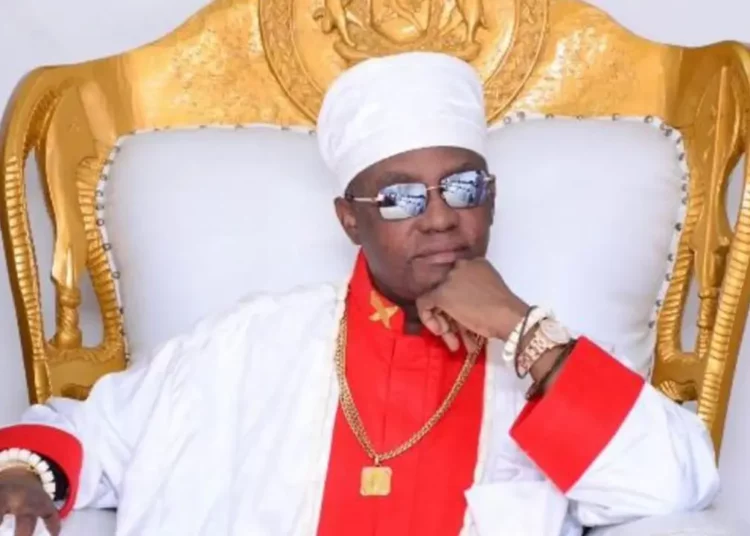Oba Ewuare II, has received a strong advisory to take immediate steps to prevent further escalation. The tension stems from the recent suspension of the Enogie of Ehor and numerous other traditional chiefs (Enigies) by the Benin Traditional Council (BTC). Calls are mounting for the revered monarch to reconsider these suspensions in the interest of peace and the overall stability of the ancient kingdom.
A prominent religious leader, Dr. Osaren Enokpae, the Presiding Bishop of Macedonia Call Global Assembly, has passionately appealed to the Oba of Benin. Dr. Enokpae urged the monarch to demonstrate magnanimity and lift the suspension imposed on the Enogie of Ehor and the other affected Enigies. He emphasized that such a gesture would be crucial in restoring harmony and preventing further division within the esteemed Benin Kingdom.
This plea for reconciliation comes at a time when the Igbanke community, situated in the Orhionmwon local government area of Edo South, has openly rejected a directive issued by the Benin Traditional Council. The TRC had instructed the traditional ruler of Igbanke to hand over authority to the Odionwere (the oldest man) of the community. However, the Igbanke people have firmly stated that their traditional rulers, known as Ndi-Ezes, are not appointees of the Oba of Benin.
In a resolute declaration, the Igbanke community asserted, “Our Kings are born and inherited kingship from our fathers. We reject handover kings.” This stance highlights a fundamental difference in the traditional succession processes between the Benin Kingdom’s central structure and the customs observed by the Igbanke people, further complicating the already delicate situation.
Dr. Emokpae, who identifies as a descendant of Ohor within the Benin Kingdom, issued a press statement conveying his deep concern. He implored the Oba of Benin to urgently reverse the suspension of the Enogie of Ehor and the other Enigies, warning that failure to do so could precipitate the “total collapse” of the Benin Kingdom. The cleric pointed out that the Igbanke community is already openly defying the Benin monarch’s authority, and he cautioned that others within the kingdom might be inclined to follow suit.
Drawing upon biblical wisdom, Dr. Emokpae reminded that ultimate authority over the appointment and removal of leaders rests with the divine. He expressed his personal affection for Oba Ewuare II, stating, “The Oba Ewuare 11 of Benin who is my cousin is so loved by our family and our desire is that the little left of Benin Kingdom would not collapse in his time.” He further advised all leaders to exercise wisdom and to remember the transient nature of life, urging them to strive to be remembered for their positive contributions. Dr. Emokpae concluded with a prayer for the Oba’s guidance, health, and wisdom during this critical period.
Meanwhile, the people of Igbanke, in a formal open letter addressed directly to the Benin monarch through the Igbanke Strategic Group, articulated their grievances. Signed by Chief Jude Ugbekile and nine other community leaders, the letter revealed that four of their traditional rulers had received unsettling communications from envoys representing the Oba of Benin. The group stated that these letters contained an order from the Oba for the incumbent traditional rulers to relinquish their positions and hand over authority to appointed successors, identified as the Odionwere.
The Igbanke community vehemently asserted that the Oba’s decision represents not only an “affront” to their distinct identity but also a blatant attempt to “desecrate” their cherished cultural heritage. They emphasized that their system of kingship succession is based on patrilineal inheritance, passing from father to son, a stark contrast to the appointment system prevalent within the Oba of Benin’s domain. In their plea for intervention, the Igbanke group urged Governor Monday Okpebholo to address the matter, underscoring the importance of upholding justice in accordance with the four pillars of the UN Charter on human rights.




